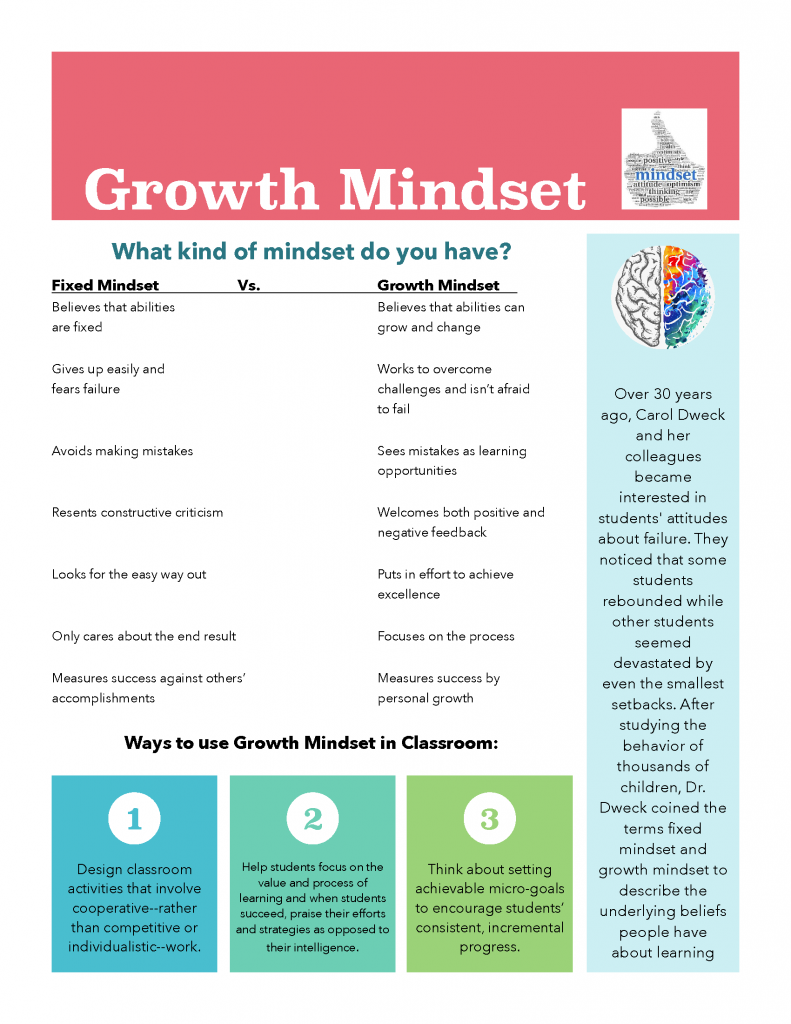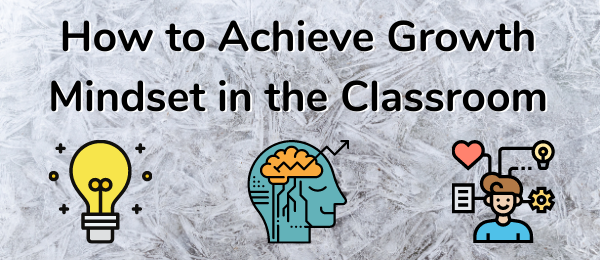Growth mindset is the belief that people can develop and finesse specific abilities through hard work and dedication while gaining a love for learning and resilience to obtain great accomplishments.

Over 30 years ago, Carol Dweck and her colleagues became interested in students’ attitudes about failure.
They noticed that some students rebounded while other students seemed devastated by even the smallest setbacks. After studying the behavior of thousands of children, Dr. Dweck coined the terms fixed mindset and growth mindset to describe the underlying beliefs people have about learning.
Ways to Use Growth Mindset in the Classroom
- Design classroom activities that involve cooperative — rather than competitive or individualistic — work.
- Help students focus on the value and process of learning and when students succeed, praise their efforts and strategies as opposed to their intelligence.
- Think about setting achievable micro-goals to encourage students’ consistent, incremental progress.
What Kind of Mindset Do You Have?
| Fixed Mindset | Growth Mindset |
| Believes that abilities are fixed | Believes that abilities can grow and change |
| Gives up easily and fears failure | Works to overcome challenges and isn’t afraid to fail |
| Avoids making mistakes | Sees mistakes as learning opportunities |
| Resents constructive criticism | Welcomes both positive and negative feedback |
| Looks for the easy way out | Puts in effort to achieve excellence |
| Only cares about the end result | Focuses on the process |
| Measures success against others’ accomplishments | Measures success by personal growth |
Explore Growth Mindset in Your Own Classroom
Eduspire offers an online course called Growth Mindset in the Classroom (EDU 917), and you can enroll anytime the course is available. This course will further research and define fixed and growth mindset and how to appropriately implement technology in the classroom to establish a growth mindset. Click below for more information.

